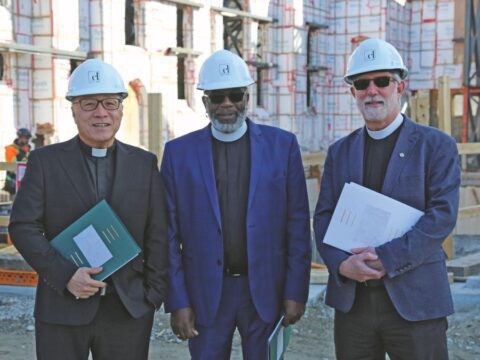In the late 1960s, Rev. Wilfred Cantwell Smith, a United Church minister and theologian, was among those consulted on the denomination’s New Creed. The process left the noted professor of comparative religion perplexed.
Smith was my professor at McGill University and later became my longtime intellectual mentor and friend. I remember him telling me that the creed committee agonized over every article except two pivotal words: “We believe.” This oversight endures in the church today as debate rages about belief in God as a necessary qualification for ministry. But what does it mean to believe? What are beliefs?
You may unsubscribe from any of our newsletters at any time.
Smith later pursued these questions in a 1974 lecture called “Is Believing What Religious People Do?” and in his 1979 book, Faith and Belief. His answer? It depends on what you mean by “believe.”
The word “believe” is related to the German word belieben, which means to cherish, feel a loyalty toward, esteem and hold dear. The English equivalent once meant all this. But because “faith” does not have a verb in English, “believe” was used in the King James Bible to convey this sense of personal dedication. The existence of God was taken for granted.
In the modern world, “believing” has come to mean “assenting to propositions understood to be truthful depictions of the way things really are.” For example, in the statement, “I believe the sun will rise tomorrow,” I am articulating what I hold to be true about the world. When the creeds say, “We believe in God, Father, Son and Holy Spirit,” they are expressing agreement with this assertion about God.
Problems arise in current theological debates, however, because the original meaning and the later meaning of “belief” are on a collision course, with the latter the clear victor. In common usage, “belief” refers not to cherishing or holding dear but to an abstract construct of the mind.
To exacerbate the problem, there emerges a third sense of “believing.” “To believe” now also means to assent to a statement about whose truth one is unsure. Smith gives the following example: “I believe Sydney is the capital of Australia.” I am making a statement about what may be true, but I am simultaneously registering my uncertainty. (As it turns out, Canberra is the capital of Australia.)
To our question, “Is believing what religious people do?” the response should be to ask what kind of believing we are talking about.
If by “believing” we mean giving mental assent to doctrine, Smith says the answer is no, that isn’t what religious people do. He views religion as participation in a historical tradition that induces and expresses the faith of participants. The key word here is “participate.” Thus, if I were testing for leadership in a community, I would not begin, “Do you believe x or y doctrine?” Rather, I would want to know things like, “Do you commit to critically exploring our sacred writings? Do you intend to guide our group’s traditional rituals and sacred performances?” A candidate who devalues sacred books and diminishes its rituals could not qualify for leadership.
Is believing what religious people do? Given the contrasting meanings of “believing,” a better path would be to say that what religious people do is participate in their community’s historical tradition. By engaging in their religion’s symbols and stories, they internalize its vision of the world and commensurate way of life.
This story originally appeared in the May 2017 issue of The Observer as part of the regular column “Conundrums.”











